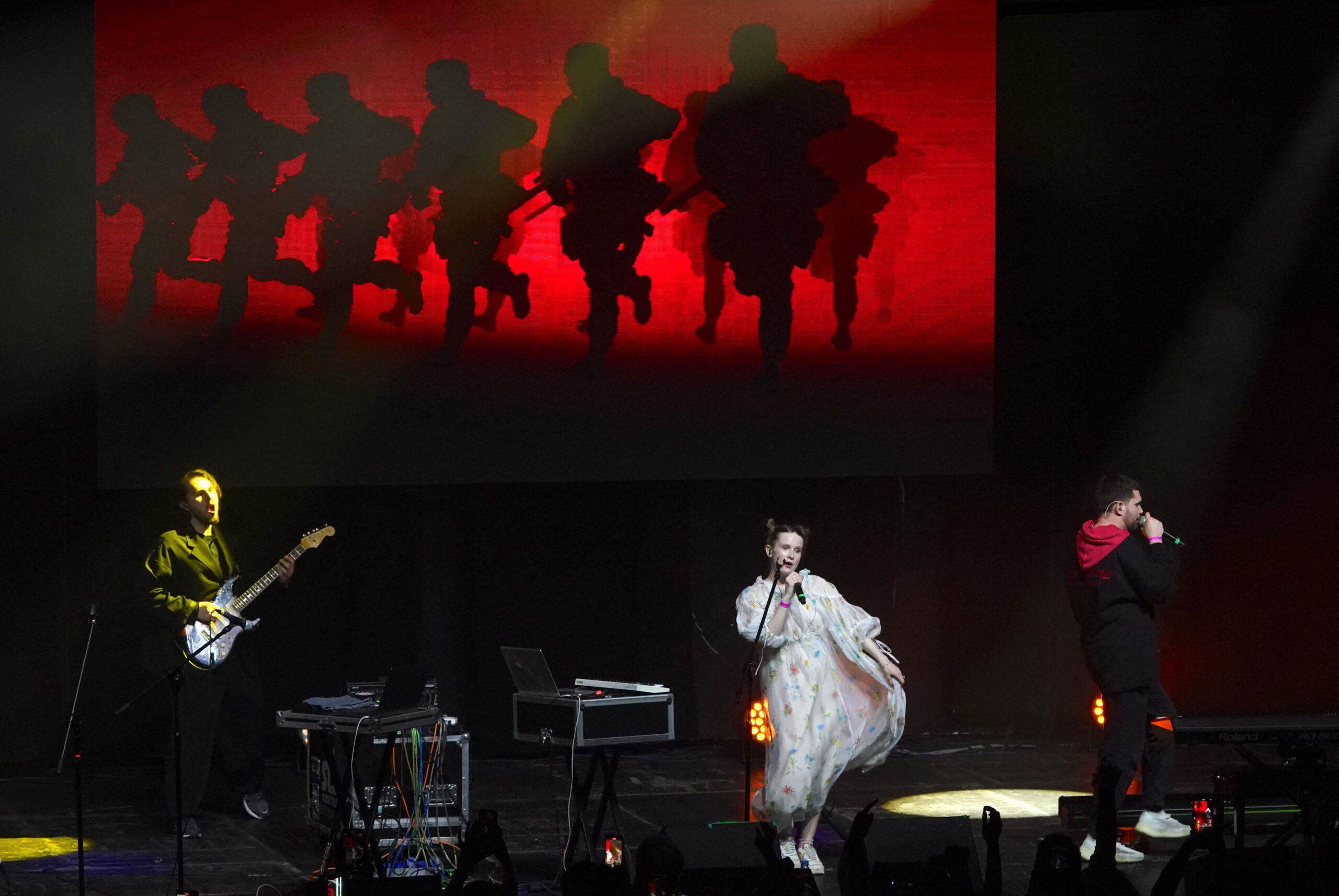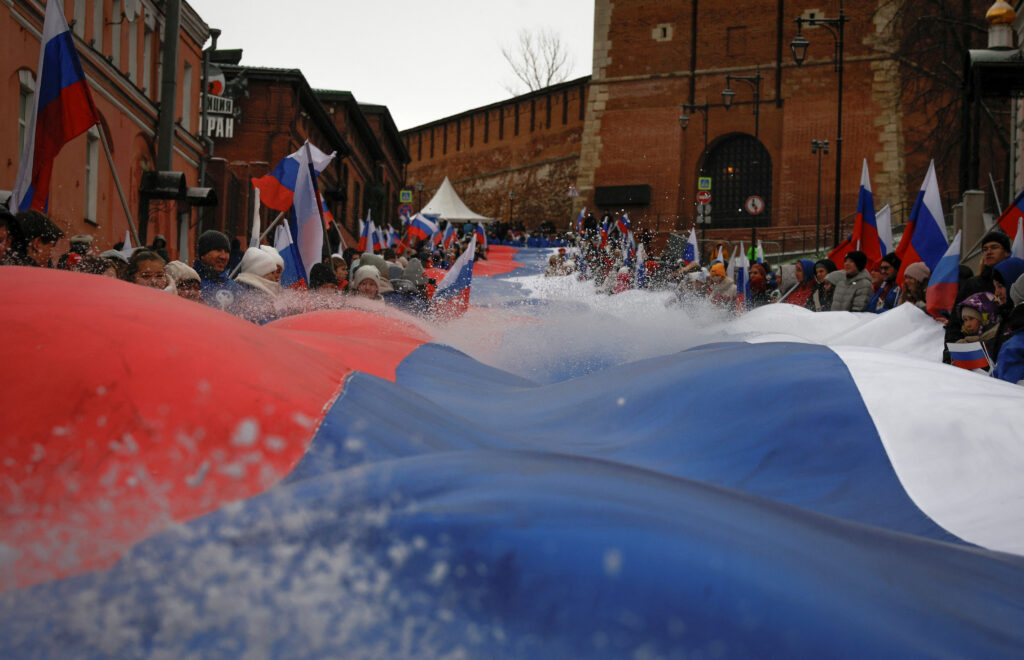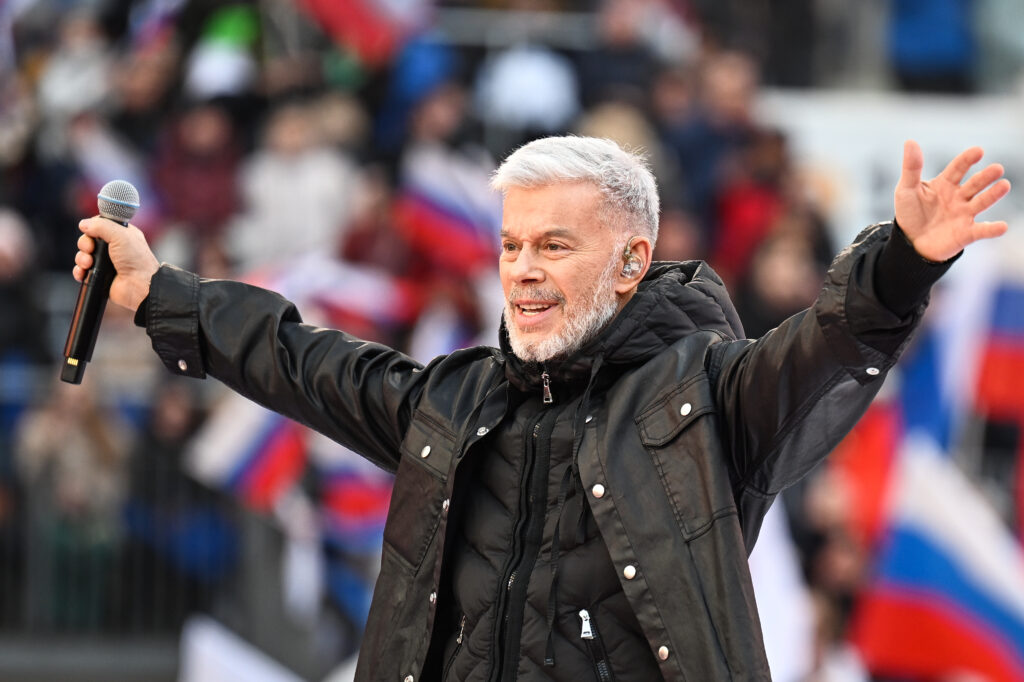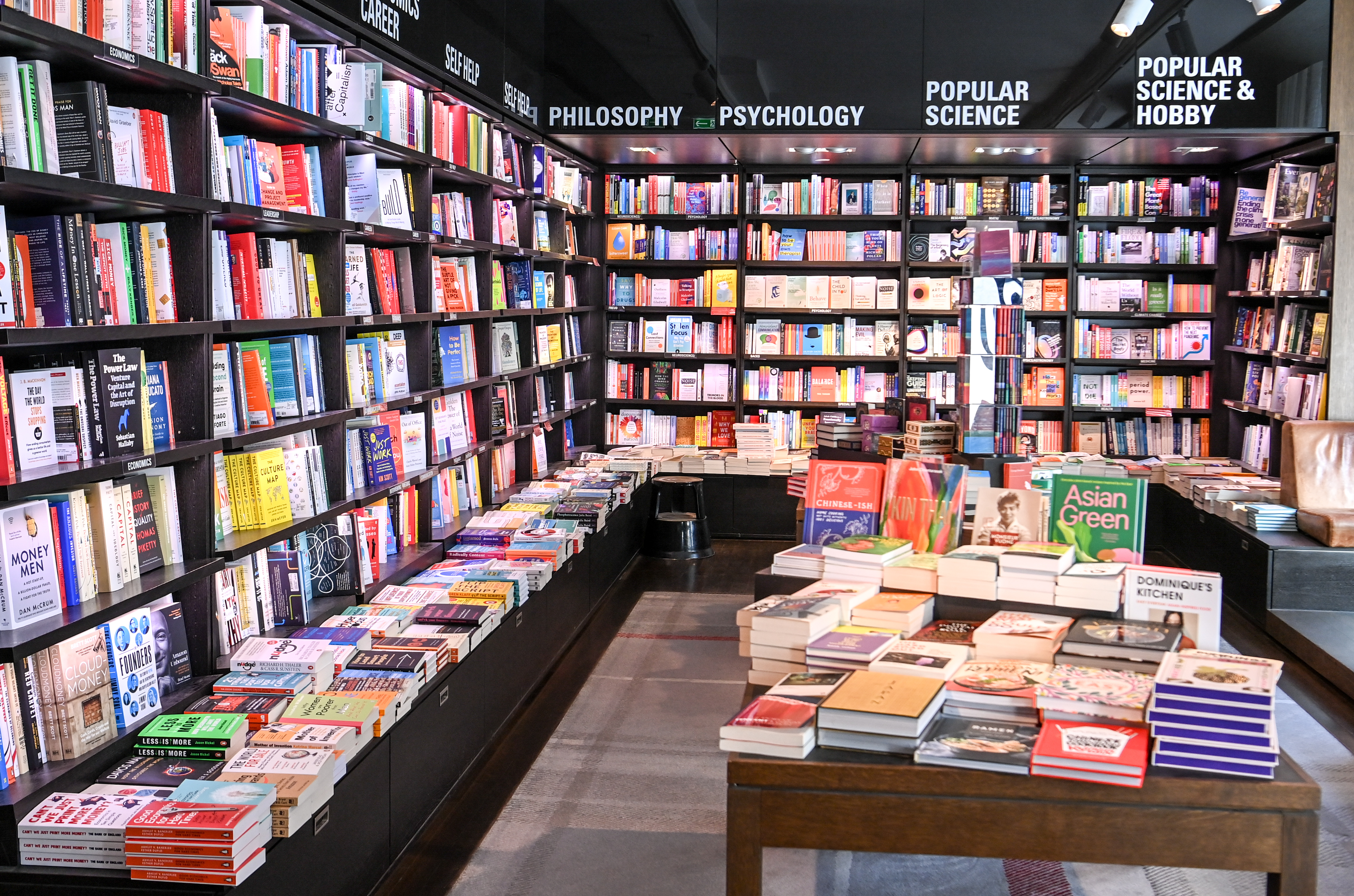In the 1990s, groups like Bachelor Party (Malchishnik) shocked a newly liberated post-Soviet Russia with funky displays of sexual freedom and hedonism. Little did they know such things would wind up practically banned. Rather than rap becoming a staple of Russia’s shiny new democratic society, this genre’s history in Russia is now a tale of demise: a once endorsed post-Soviet dream of freedom and self expression has been pushed to the margins. As the last ten years has shown, there is little room for genuine political opposition — and rap is no exception.
All told, the ongoing history of rap in Russia has become a sorrowful fable of unfulfilled dreams and stunted progress. Most censorship by now cracks down on perceived Western influence under pretexts of «extremism,» «petty hooliganism,» or supposed «drug propaganda.» There is no room in the public sphere any more for «non-traditional lifestyles.» With the Russian-Ukrainian war now more than a year old, it’s imperative this evolving story of repressive censorship gets told and retold. Effectively, the plight of Russian rap is a living mirror of Russian society, and to understand the nature of its censorship offers a valuable glimpse into the state of Russia today.
A Brief History of the Russian Government’s Rap Battle
Looking back, 2010 marked a major turning point. This was the year Russian rap started to catch the eye of government censors. Before then, government officials remained fairly agnostic. While political topics weren’t foreign to Russian rap before this time, it wasn’t a defining element, according to social scientists like Elena Frolova. During the 1990s, Bachelor Party’s infamous participation in Boris Yeltin’s 1996 election campaign had demonstrated the political potential of rap; but that was largely an exception and largely unacknowledged by those in the corridors of power.
After 2010, rap steadily emerged as a cultural frontline where «decadent» Western influence could be controlled, bastardized and quasi-purged. In July that year, Noise MC, one of Russia’s most prized and most political rappers, was jailed at a concert in Volgograd because of foul language. Thus began a wave of anti-rap censorship which has continued to today, touching places as far out as Ulan-Ude and Samara.
Just three days after Noize MC’s arrest, he was jailed for «petty hooliganism,» one of Russia’s most ambiguous criminal offenses. Then came a brief period of respite — an eerie absence of direct censorship that ushered in an insidious culture of self-censorship. While the protest group Pussy Riot’s «punk prayer» foregrounded the polemics of modern Russian society, it did little to stop censorship’s direct influence on rap. In 2014, the group Kasta publicly addressed how censorship was affecting the way they created music; this was echoed years later by groups like Anacondaz and Ligalize. By 2015, Krovostok had their website taken down for alleged drug and violence promotion, while the following month musician Artem Brovkov endorsed censorship for those under 18.
The protection of youth is one of the most widespread tactics of anti-rap censorship. According to statistics from 2019, most young Russians listen to rap/hip hop. That said, as the 2010s progressed, the excuses diversified. Rappers had their performances stopped on pretexts ranging from faulty buildings to drugs to «extremism.». The freedoms enjoyed by the «Old School» during the 1990s never again returned — a fate reminiscent in many ways to the Russian Futurists. In 2017, one of Russian rap’s biggest rap battles occurred between Oksimiron and Slava KPSS, putting Russian rap on the lips of notable public intellectuals like Artemy Troitsky, the poet Dmitry Bykov, opposition figures like Mikhail Khodorkovsky, and even non-musical academics like Alexander Panchin. However, censorship was still wreaking havoc, with the next two years marked by an uptick in cases of censorship, with mainstream voices like 25/17, Slava KPSS, and FACE facing charges of «extremism» and profanity.
In 2018, the first of several purges occurred, underscored by Putin’s «foreign agent» campaign and Russia’s worsening domestic terrorist epidemic. It would be one of Russian rap’s most challenging years. On January 15 that year, a series of domestic terrorist attacks shook Russian society. With the safety of youth a focus, these attacks signified a need for increased oversight on cultural influences. If this sounds like the American 1990s, it’s because throughout the year rap would come to signify everything wrong with modern society. This became evident in March when LSP had his song «Numbers» banned for alleged dissemination of suicidal messaging. Following more attacks in April and May, a predictable list of rappers was now the subject of intense scrutiny. Rappers like FACE, IC3PEAK, Allj, Gone. Fludd, and Husky became scapegoats of Russia’s cultural disagreement with the West. The flashpoint of 2018 was without doubt Husky’s jailing, the widespread protests for his release, and the infamous Duma round table which resulted in several ineffective government campaigns.
The onset of Putin’s fourth term marked the unchanging nature of Russian politics and the ubiquity of censorship from 2019 to 2020 exemplified this. During 2021, not only did censorship return to 2018 levels but new faces emerged as cultural «parasites.» Morgenshtern, a pop rapper, Instasamka, and Vasya Oblomov joined their peers to become fresh faces of Russia’s anti-rap revolution. So by 2021 rap in Russia had been demonised; it was portrayed by the authorities as a conduit for a widespread, multi-dimensional attack on the ‘holistic’ unity of the Russian nation. Whether that be the ostensible promotion of drugs, depictions of suicide and excessive violence, or personal vendettas against political stances, rap was the boogeyman standing against any much needed purification of Russian society. While those like Vitaly Milonov called for violence against rappers and anti-LGBT control, Morgenshtern’s exodus from Russia in the fall of 2021said it all. Russia was no safe haven for rap.
Rap in a time of War
With the onset of Russia’s invasion into Ukraine in 2022, Russian rap has been turned upside down once again, with its future heavily undermined by Putin’s war on Ukraine. Rappers like Oksimiron, Allj, and others began canceling their Russian concerts, with large movements coming together to show their anti-invasion sentiments. Yet, equally as potent was the realization that the freedoms enjoyed during the 1990s, even the curtailed freedoms of the mid-2010s, had drawn to a close thanks to the banning of seminal groups and artists like Kasta, Noize MC, and Krovostok.
Neither «Old School» or «New School» figures were safe from government reproach. This became evident with Putin’s increased scrutiny on «foreign agents.» In 2022 private individuals became subject to this label. Much like «hooliganism,» the parameters involved are subjective and biased; the effects hold widespread ramifications for a rapper within Russia. By June 2022, the «second wave» of Russian rap emigrations had decimated the once dense ecosystem. Among those who left were representatives from many corners of Russian rap like Loquiemean, FACE, Oksimiron, Scriptonite, and Morgenshtern. (Timati, one of Russia’s most polemical figures, also fled but has since returned both to Russia and his ways.)
Life has not been easy for those who stayed behind. Cancellations and blacklisting has stalked performer after performer. The most infamous crackdown was the Tsargard «Russophobes-2022» list, published in June and naming rappers like FACE, Oksimiron, Viktor SD, and Eldar Dzharakhov as anti-patriotic criminals. From September to December, Russian rap was repeatedly under fire from the authorities. Local governments canceling concerts became the norm, with threats of «extremism» just a piteous fact of Russian contemporary life. Adding fuel to the fire was another school-based domestic terrorist attack, this time in Udmurtia. However, unlike in 2018, rap was now the culprit and the demonstration of undesired Western penetration of a moral Russian society.
When Putin in 2018 erroneously characterised rap as «sex, drugs, and protest,» it revealed a presidential disapproval that is now showing its full force. By December 2022, the «Old» and «New» schools found themselves in trouble again when rappers Vladi, Aigel, Hofmannita, and Pasha Technic were all subject to censorship. No allowances for nuance, no room for ambiguity; to rap in Russia now meant one had to be morally pure, religiously observant, politically clean, and free from the hedonistic urges of the so-called «Western world.» Instasamka, a liberated female rapper of the modern generation, made history by being one of the first female Russian rappers to be severely censored, having her tour effectively dismantled and her name tarnished. While opting out of politics, her usage of sexuality in a heavy climate of patriarchal restrictions speaks to her ability to operate in a space that clearly opposes her freedom. But the end of 2022 marked a turning point in Russian rap history. Those rappers still within Russia were now subject to penalties, and fame was promised only if one kowtowed to power. What it meant to be a rapper had changed, with rap no longer about speaking «conscious» truth to power but rather walking the line. The purpose of rap has been broken and distorted in Russia.
Since the start of 2023, censorship against Russian rap has taken another strange turn. In January, the first court case of LGBT propaganda was waged, while the never-before-seen phenomenon of rappers apologizing for their ‘offenses’ became a norm. Due to the work of Katerina Mizulina, head of the Safe Internet League (LBI), mainstream rappers like Instasamka, Scally Milano, Hofmannita, and Blago White have expressed public apologies for their ‘crimes.’ Taking a starkly moralist turn, Mizulina has waged all-but-war on Russian rap, while cancellations have skyrocketed, well-known faces like AK-47, Gone. Fludd, Guf, Andro, Jahh Kalib, Big Baby Tape, and Shokk all falling under the purview of anti-rap activism. A strict development of what constitutes drug promotion and LGBT promotion have also altered the language of Russian rap. Under Mizulina’s unrelenting iron fist, there is little room for rap to exist as it once did. Just recently, Pasha Technic was accused of Nazi propaganda and Ligalize has become a «foreign agent.» The future of Russian rap is no longer guaranteed and whether someone comes from the «Golden Age» of Russian rap or not, no one is truly safe from reproach. The logical follow-up would be, «Why?» There’s no simple answer to this, of course. If one looks to the rhetoric of those like Katerina Mizulina, Andrey Alshevski and Vitaly Milonov, just to name a sobering few, this is about seeing rap as a leech upon a «moral» and «innocent» Russian society. Just recently, Morgenshtern had released comments about his disinterest in American society and desires to come ‘home,’ as he called it. While some are very optimistic about that, I see only troubles ahead.
What we are bearing witness to is a complete restructuring of Russian rap’s fabric as we know it. While rappers like Noize MC, Ligalize, and Oksimiron have defined a palpably political side of the spectrum, the latter with his new track, «Dangerous Internet League,» others like Big Baby Tape and ‘pop rap’ artists are not so lucky. Capitulating to the strong-arm forces of Putin’s government to secure precious air time and deals, those under the «mainstream» thumb have no choice but to apologize and hope for their sins to be absolved so they can perform domestically again.










